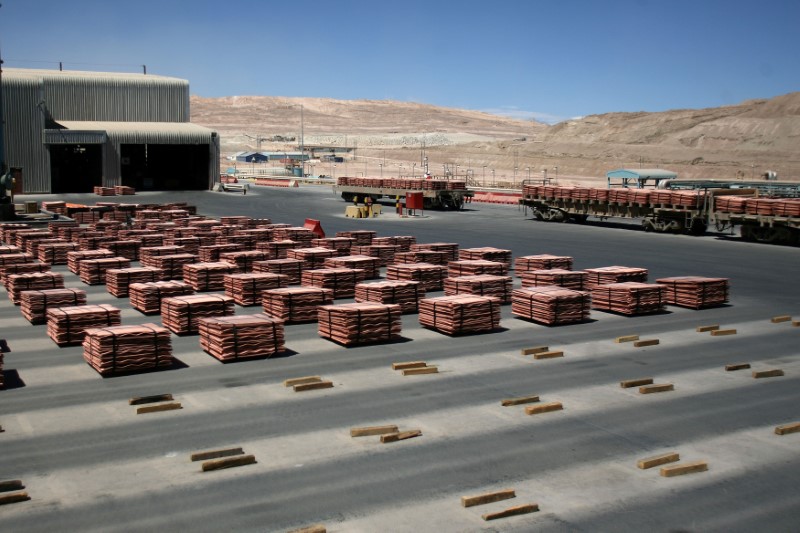(Bloomberg) -- Global factory output is slowing sharply and the U.S.-China trade war is casting a pall over the outlook for metals, but one area of the copper market is looking the tightest since the peak of the commodities supercycle.
Under a new supply deal signed with Freeport-McMoRan Inc., major Chinese smelters have accepted the lowest processing fees to turn mined ore into finished metal seen since 2011. Back then, China’s economy was growing at 10% a year and copper prices were trading at all-time highs above $10,000 a ton.
The slump in treatment and refining charges is a sign that miners are struggling to keep up with demand from Chinese smelters, which have been boosting production capacity over recent months.
The lower fees will increase the strain on those smelters just as a slowdown in China’s manufacturing output darkens the outlook for refined metal demand. With spot treatment charges already pushing some smelters into loss-making territory, there are mounting expectations that some companies will cut output rather than produce metal that’s surplus to requirements.
“The copper concentrate market is in a tight state and it will get even tighter next year,” Nicholas Snowdon, an analyst at Deutsche Bank AG (DE:DBKGn), said at the Asia Copper Conference in Shanghai. That “raises the risk around potential supply response, particularly on the private smelting side in China.”
Top Chinese smelters, including Jiangxi Copper Co. and Tongling Nonferrous Metals Group Co., will receive $62 a ton to treat concentrate and 6.2 cents a pound to refine metal in 2020, according to people familiar with the matter, who asked not to be identified because the information is private. That compares with $80.80 a ton and 8.08 cents a pound for this year.
A representative from Jiangxi couldn’t confirm the charges, while a representative from Tongling couldn’t be reached for comment.
While the falling processing fees aren’t affecting prices today, they serve as a reminder of the mining industry’s poor record in hitting production targets and bringing new supply online. Figures from the International Copper Study Group show mine supply dropped by about 0.5% in the eight months through August. Miners say higher prices will be needed to stimulate output and avert a deficit as demand swells in future years.
Consumption could grow 2% a year until 2030, which means an additional 7 million tons of refined copper supply will be needed, Anglo American (LON:AAL) Plc’s chief executive for base metals Ruben Fernandes said during the Shanghai conference. He said that should help offset broader macro pressures that have kept copper prices pegged back at an average of just over $6,000 a ton this year.
Chinese smelters have bemoaned the tough fee environment at this week’s conference, with a senior official at China Minmetals Corp.’s copper unit saying the company had already curtailed some output.
The company is losing money on spot charges in the $50s, according to Yan You, vice general manager of the copper unit. The falling treatment charges “are hitting Chinese smelters badly,” he said Wednesday in Shanghai.
